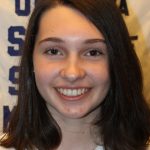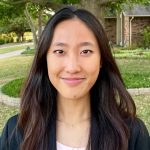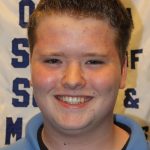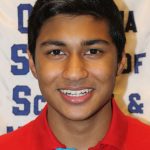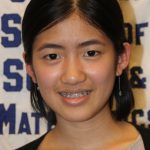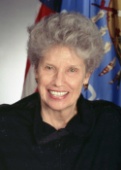
Senator Penny Williams, Tulsa, former Chair of the Senate Education Committee as well as the Legislative Arts Caucus, has been a leader in education, science and technology, and arts and humanities issues in the Oklahoma legislature. After serving four terms in the State House of Representatives, she was elected to the State Senate in 1988 where she served until 2004. In 1983, then State Representative Williams introduced House bill 1286 which created the Oklahoma School of Science and Mathematics. Marshaling co-authors and battling for scarce funds, her tireless advocacy secured the passage of the bill and continuing support of OSSM.
In appreciation for the far-sighted vision of this special public servant, and in tribute to her role as the sine qua non of OSSM, her friends and friends of the school have created and begun the endowment of these lectures that will bring national and international figures in the arts and sciences to the Oklahoma School of Science and Mathematics. The contribution of ideas of speakers like these below to our state’s intellectual milieu is the greatest and most appropriate gratitude that we can offer Senator Williams.
ON THURSDAY, APRIL 28, 2022, we are honored to welcome
Gerard “Ged” Parkin, D.Phil. – Professor of Chemistry, Columbia University
as OSSM’s 30th Anniversary Scholar
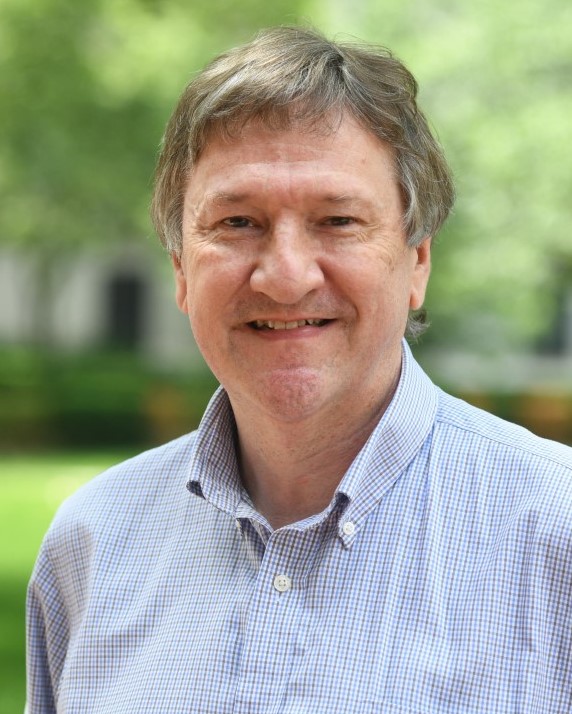
Gerard Parkin received his B. A., M. A., and D. Phil degrees from the Queen’s College, Oxford University, where he carried out research under the guidance of Professor Malcolm L. H. Green. In 1985, he moved to the California Institute of Technology as a NATO postdoctoral fellow to work with Professor John E. Bercaw. He joined the faculty of Columbia University as Assistant Professor in 1988 and was promoted to Associate Professor in 1991 and to Professor in 1994. He served as Chairman of the Department from 1999 – 2002. He has also served as Chair of the New York Section of the American Chemical Society, Chair of the Inorganic Chemistry and Catalytic Science Section of the New York Academy of Sciences, Chair of the Organometallic Subdivision of the American Chemical Society Division of Inorganic Chemistry, and Chair of the Gordon Research Conference in Organometallic Chemistry.
He is an elected Fellow of the American Chemical Society (ACS), the Royal Society of Chemistry (RSC) and the American Association for the Advancement of Science, and is the recipient of a variety of international awards, including the ACS Award in Pure Chemistry, the ACS Award in Organometallic Chemistry, the RSC Corday Morgan Medal, the RSC Award in Organometallic Chemistry, the RSC Ludwig Mond Award, and the RSC Chem Soc Rev Lecture Award. He is also the recipient of the United States Presidential Award for Excellence in Science, Mathematics and Engineering Mentoring, the United States Presidential Faculty Fellowship Award, the James Flack Norris Award for Outstanding Achievement in the Teaching of Chemistry, the Columbia University Presidential Award for Outstanding Teaching, and the Lenfest Distinguished Columbia Faculty Award.
His principal research interests are in the areas of synthetic, structural, and mechanistic inorganic chemistry.
RSVP HERE
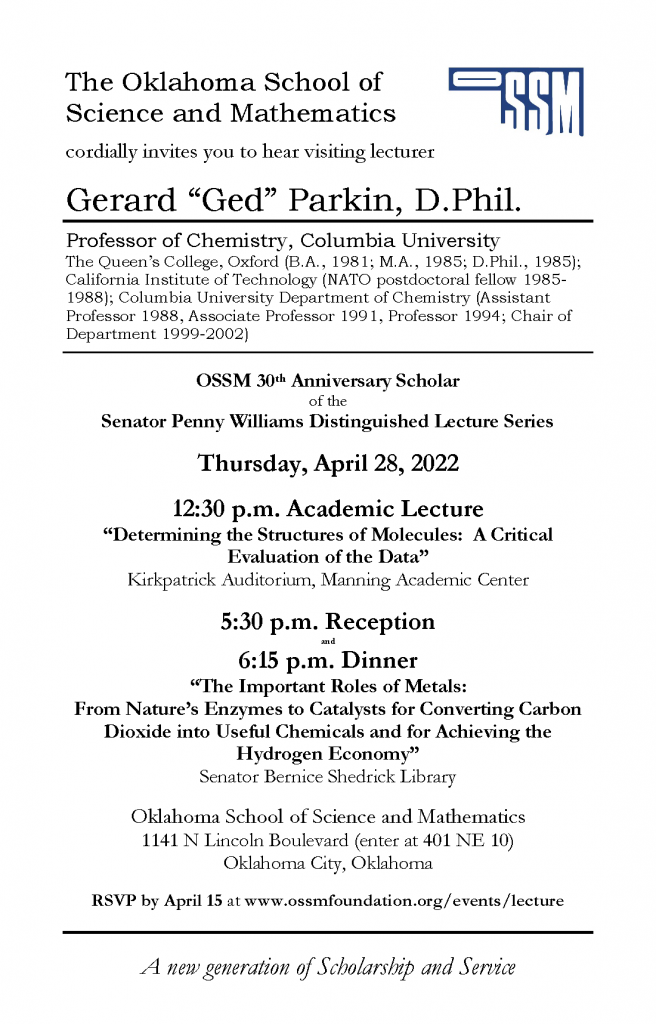
Past Distinguished Lecturers
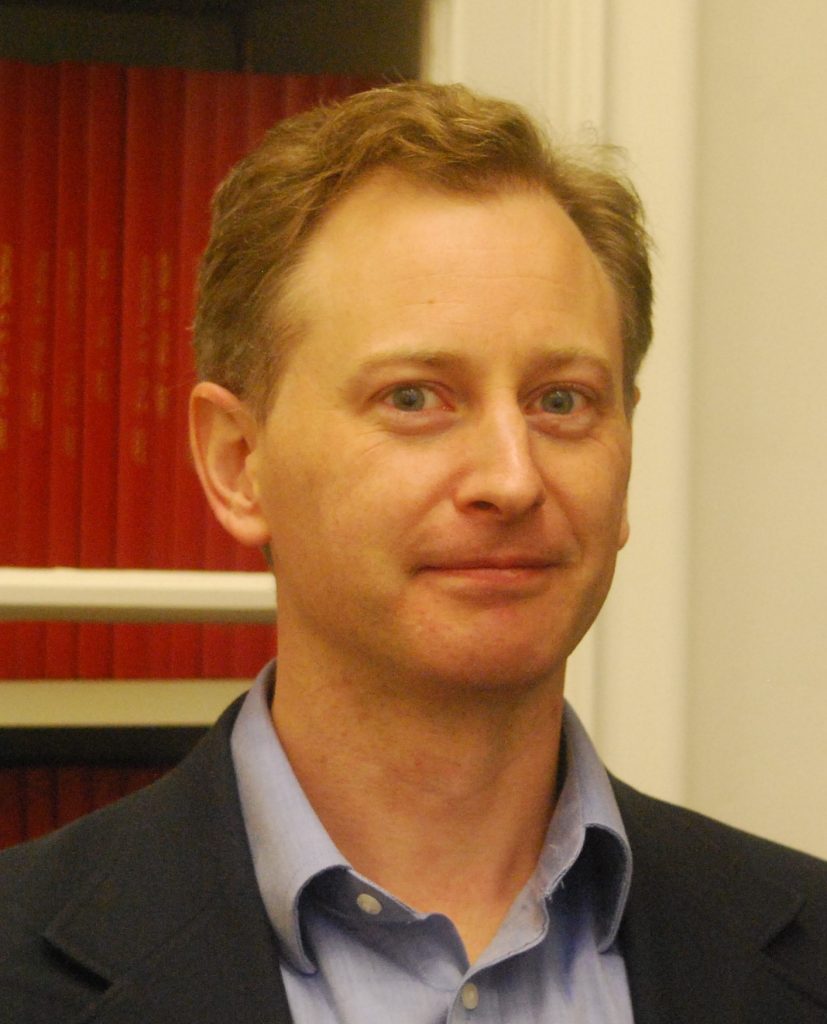
March 30, 2017 Geoffrey S.D. Beach, Ph.D. – Associate Professor of Physics, MIT (Program for Lecture)
Associate Professor in the Department of Materials Science & Engineering and Chair of Undergraduate Studies at the Massachusetts Institute of Technology (and OSSM Class of 1993 alumnus!), Dr. Beach directs the Laboratory for Nanomagnetism and Spin Dynamics, which designs advanced materials for spin-based memory, logic, and emerging applications. Developing ways to store information more densely and to access it more quickly requires understanding the magnetization configurations in nanoscale structures and how they evolve in time. His work aims in part to understand and control spin excitations in magnetic materials whose dimensions approach fundamental magnetic length scales. One of the most exciting prospects in magnetism today is the possibility of electrical control of the magnetic state of a device, taking advantage of the coupling between spin and charge in a conducting ferromagnetic material.
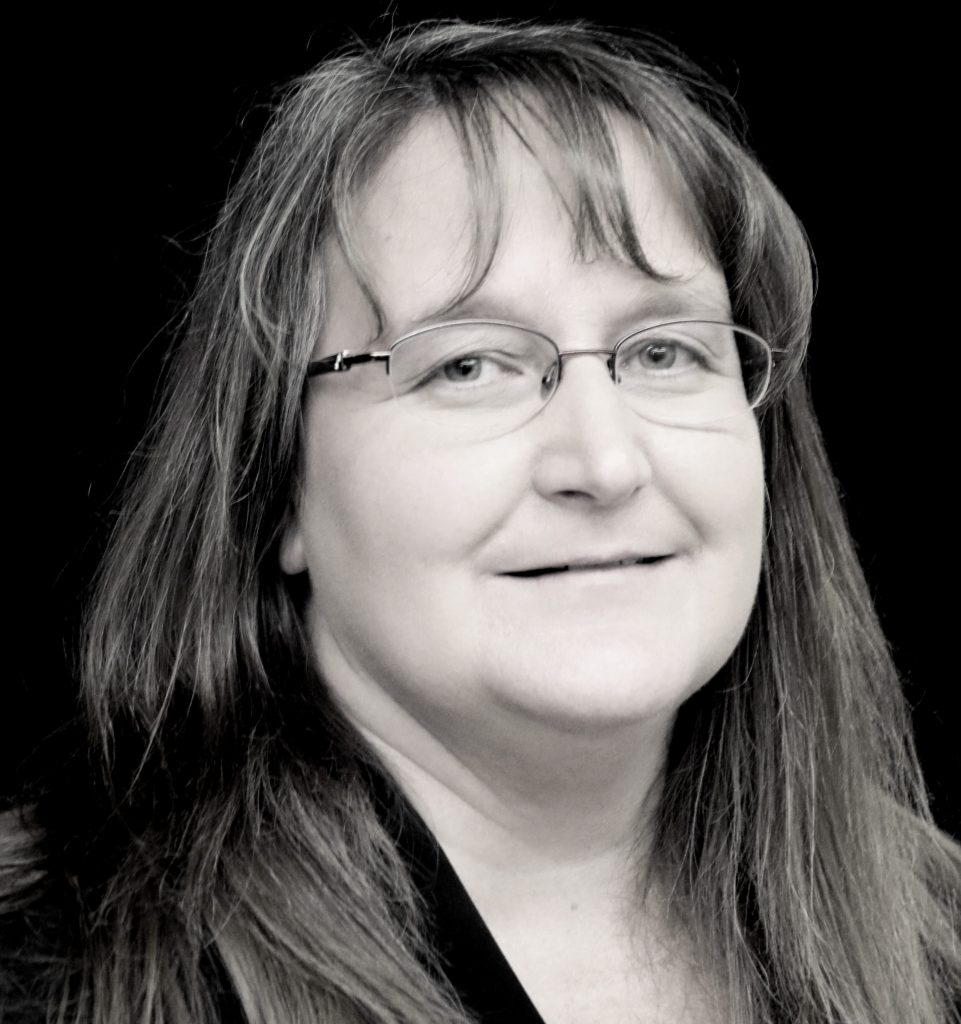
March 1, 2016 Judith A. James, M.D., Ph.D. – Biochemical Researcher
Chair of the Arthritis and Clinical Immunology Program; Lou Kerr Chair in Biomedical Research at the Oklahoma Medical Research Foundation; Associate Vice Provost for Clinical and Translational Science, Professor of Medicine, Adjunct Professor of Pathology, Microbiology & Immunology and George Lynn Cross Research Professor at the University of Oklahoma Health Sciences Center
Dr. James’ research interests focus on understanding the etiology and pathogenesis of lupus, Sjogren’s syndrome and related disorders, the evolution and pathogenic mechanisms of autoantibodies in systemic rheumatic disease, and the interplay of genetic risk and environmental responses in systemic autoimmunity.
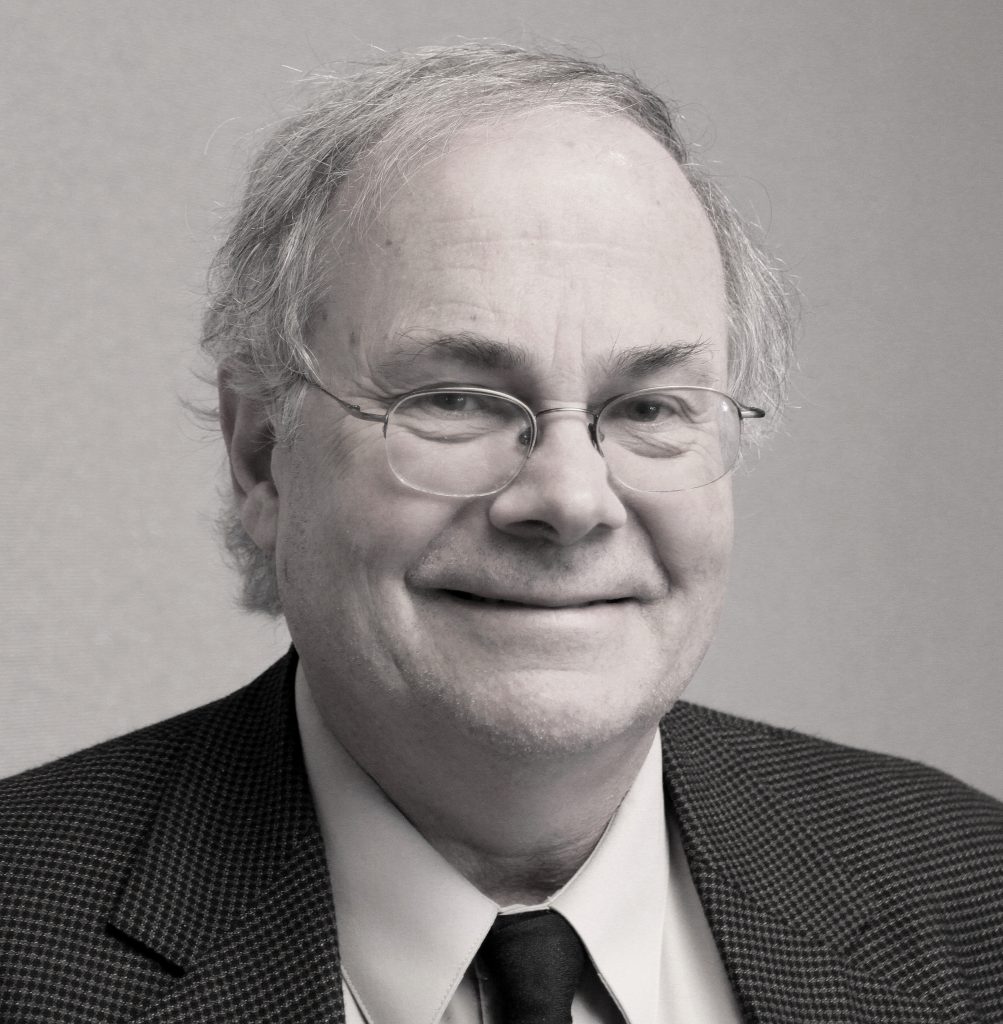
April 22, 2014 Gregory A. Petsko, D.Phil. – Biochemist, Geneticist, Structural Biologist
Arthur J. Mahon Professor of Neurology and Neuroscience and Director, Helen and Robert Appel Alzheimer’s Disease Research Institute, Weill Cornell Medical College; Adjunct Professor of Biomedical Engineering, Cornell University; Gyula and Katica Tauber Professor of Biochemistry and Chemistry, Emeritus, Brandeis University; Adjunct Professor of Neurology, Harvard Medical School
Understanding biochemical bases of neurological diseases like Alzheimer’s, Parkinson’s, and ALS; discovering drugs (especially by using structure-based drug design); key contributions to the field of protein crystallography.
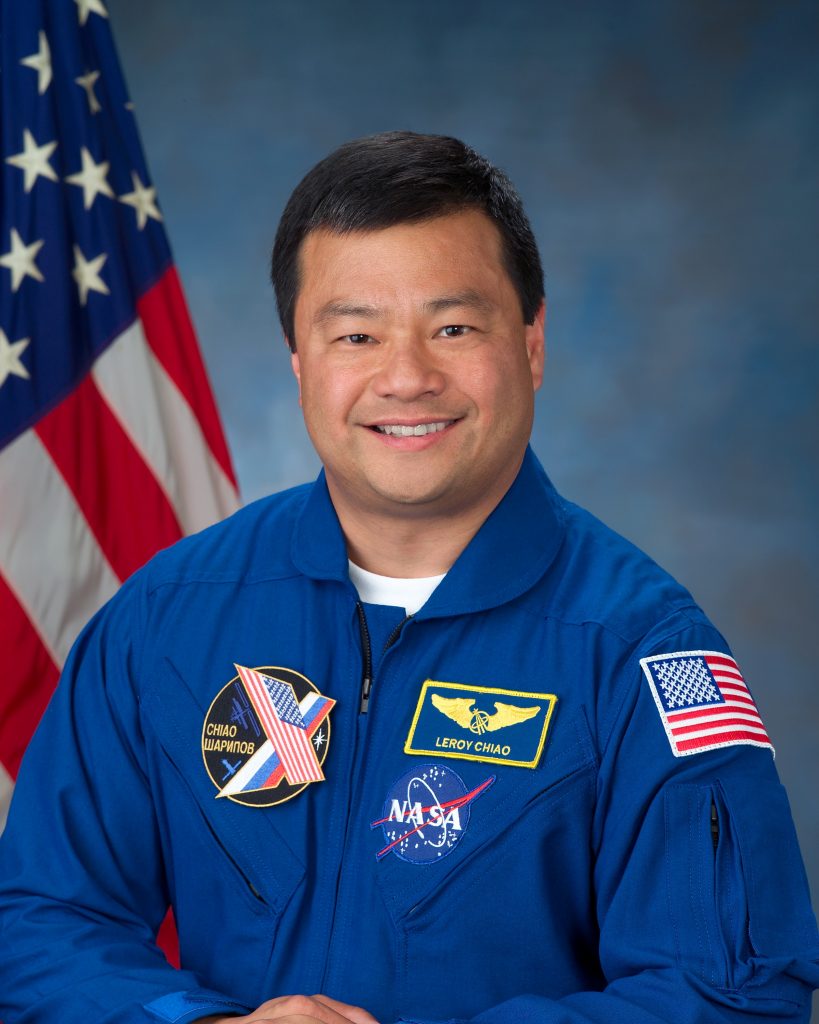
October 24, 2008 Leroy Chiao, Ph.D. – Engineer, Astronaut, Entrepreneur
Holds appointments at Rice U and Baylor College of Medicine; special advisor for human spaceflight to the Space Foundation and serves on NASA Advisory Council.
Flew on three shuttle flights; commander of Expedition 10 where he lived on board the International Space Station for more than six months in 2004-2005; a co-author and researcher for the Advanced Diagnostic Ultrasound in Microgravity Project.

May 3, 2007 Eduard Brezin, Ph.D. – Theoretical Physicist
Professor at Ecole Normale Superieure, Paris, Past President French Academy of Sciences
Macroscopic physical properties of matter and high energy physics; leader in critical behavior theory; developed methods for distilling testable predictions for critical exponents. In using field theoretic techniques in the study of condensed matter, Brezin helped further modern theories of magnetism and the quantum Hall effect.
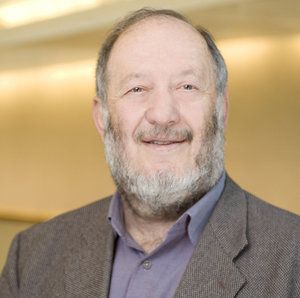
April 21, 2006 Irving Weissman, M.D. – Stem Cell Biologist
Director, Institute of Stem Cell Biology & Regenerative Medicine, Stanford U School of Medicine
Developed methods to identify stem cells; extensively researched stem cells and progenitor cells; widely recognized as the “father of hematopoiesis”—first to purify blood forming stem cells in both mouse and humans.

April 9, 2003 Jean D. Wilson, M.D. – Medical Researcher
Charles Cameron Sprague Distinguished Chair of Biomedical Research
U Texas Southwestern Medical Center at Dallas
Extensive research on hormone action; developed methods for quantification of cholesterol synthesis, absorption, degradation, and excretion which led to development of paradigms to define contributions of diet and endogenous synthesis to cholesterol turnover.
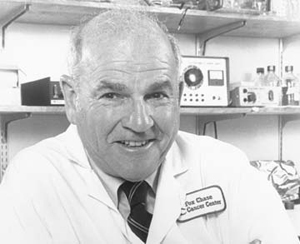
April 19, 2001 Baruch S. Blumberg, M.D., Ph.D., Nobel Laureate 1976 – Medicine
Professor of Medicine and Anthropology, U Penn
Received Nobel Prize for “discoveries concerning new mechanisms for the origin and dissemination of infectious diseases.” Blumberg identified the Hepatitis B virus and later developed its diagnostic test and vaccine.




